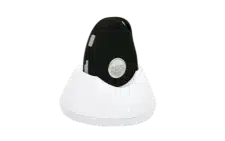Doorstep scammers are becoming progressively more sophisticated and more methodical in committing fraud. It is reported that doorstep scams account for 5% of all scams committed and that 85% of these victims are aged 65 years and over according to National Trading Standards. Older people are considered more of a target – both online and by doorstep scammers – as fraudsters can find it easier to confuse or intimidate them and they are more likely to be home during the daytime.
We’ve produced a brief overview of the types of scams to watch out for and what to do if you are a victim of a doorstep scam.
Doorstep scams
There are a few different ways in which doorstep scammers will try and gain access either to your home or your information in order to commit fraud. The most common types include;
“Rogue Traders” – Someone cold-calling at your property to offer you a service you do not need. They often look at your property prior to knocking to see if they can offer home repairs or improvements. They are likely to charge highly for work they will either never carry out or they will carry out to a sub-standard level.
“Hard Luck Stories”- These people will come to your door with a story designed to make you feel sorry for them. These stories can be anything as elaborate as saying their dog is in your back garden or that they need to use your phone to call their ‘pregnant girlfriend’. They may do this to ask you for money directly or they may want an opportunity to come into your home to assess which valuables you have and gather information about yourself and access points to your property.
“Bogus officials” – A common trick for doorstep scams is to pretend to be a representative from your gas or electricity provider. They are likely to arrive with a fake ID and fake documents. They may wish to gather information about you to con you out of money.
What to do if you are confronted with a doorstop scammer
- A simple thing to try would be to put a sign up by your front door to let visitors know you don’t answer the door to cold-callers. Stickers and signs are widely available online or you may be able to obtain one from your local council. It is not currently a criminal offense to ignore a “no cold-calling” sign but it would be if a cold-caller refuses to leave your property when asked to.
- Always be on guard and suspicious of uninvited visitors. Do not let anybody into your home you do not know or trust. If you have a door chain, then always open the door with the chain still on to provide extra reassurance and security. Do not feel embarrassed to ask an uninvited visitor to leave your property – be confident and assertive.
- If somebody comes over claiming to be from your gas or electricity provider for example, always ask to see their ID to ensure they are a genuine company representative. Remember; fake documents can be easy to produce so if you have any suspicions ask them to wait whilst you call the company directly. Always keep your own copy of your utility providers contact numbers available and don’t rely on the visitor to provide you this information – they may be giving you a fake number. You may be able to ask the provider of your utilities to set up a ‘password’ that the representative would relay to you upon visiting to reassure you they are legitimate.
- You can always ask an uninvited visitor to come back at a more ‘convenient’ time which means you can arrange someone to be with you when they call round again – this may be one of your Careline alarm emergency contacts. Perhaps a friend or family member. Alternatively, if you have a good relationship with your neighbours you may be able to ask them to pop over to support you and oversee any interactions with doorstop sellers or company representatives. Your neighborhood may be enrolled in a Neighbourhood Watch scheme which aims to bring residents together to promote a friendly and safe community and reduce anti-social behavior. You can ask your local council for more information about this as this vital piece of information may help you combat potential doorstep scams.
Choose Your Personal Alarm
To help you choose, start by selecting where you would use your personal alarm. In home only or at home and on the go.













Leave a Reply